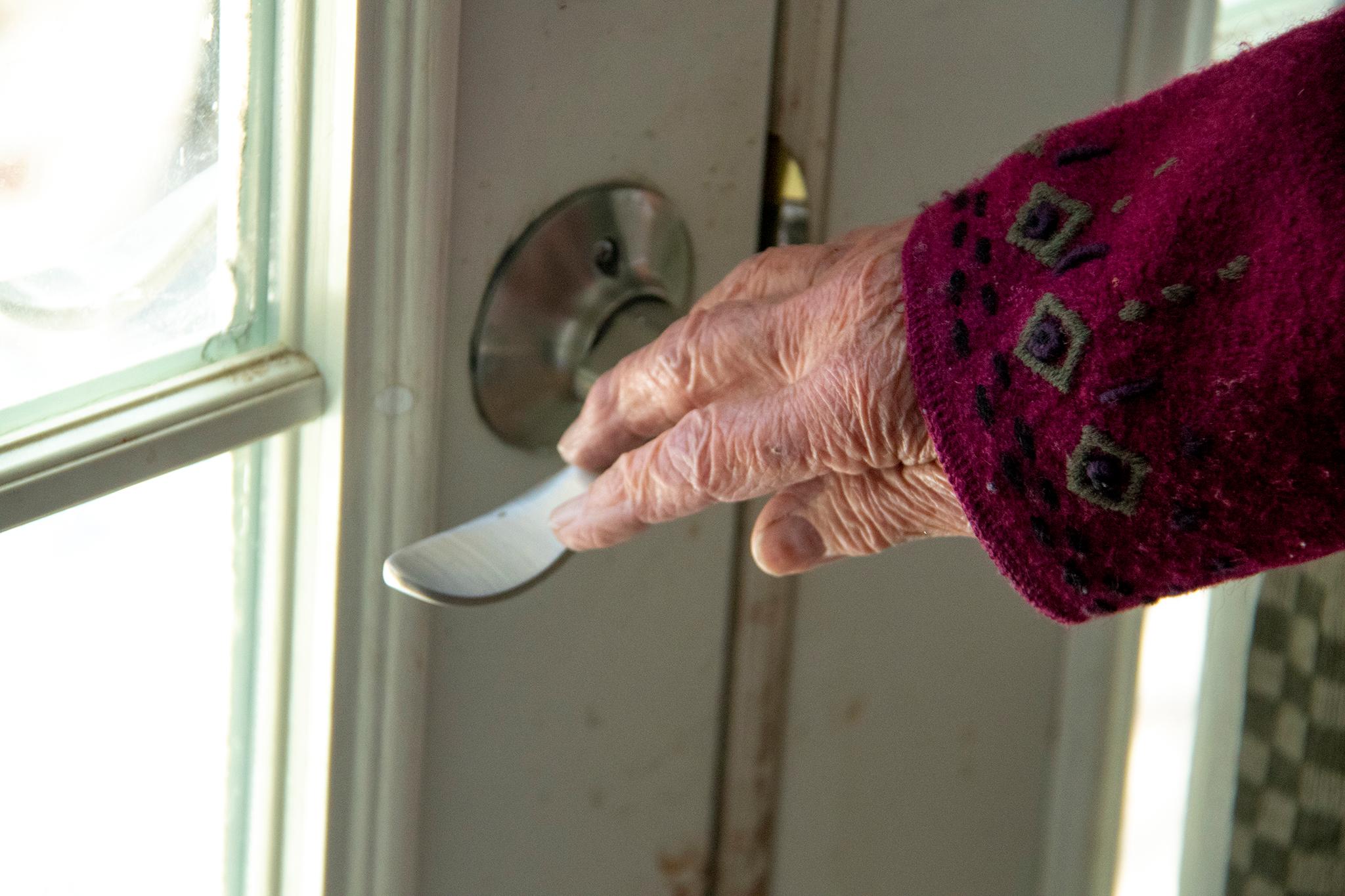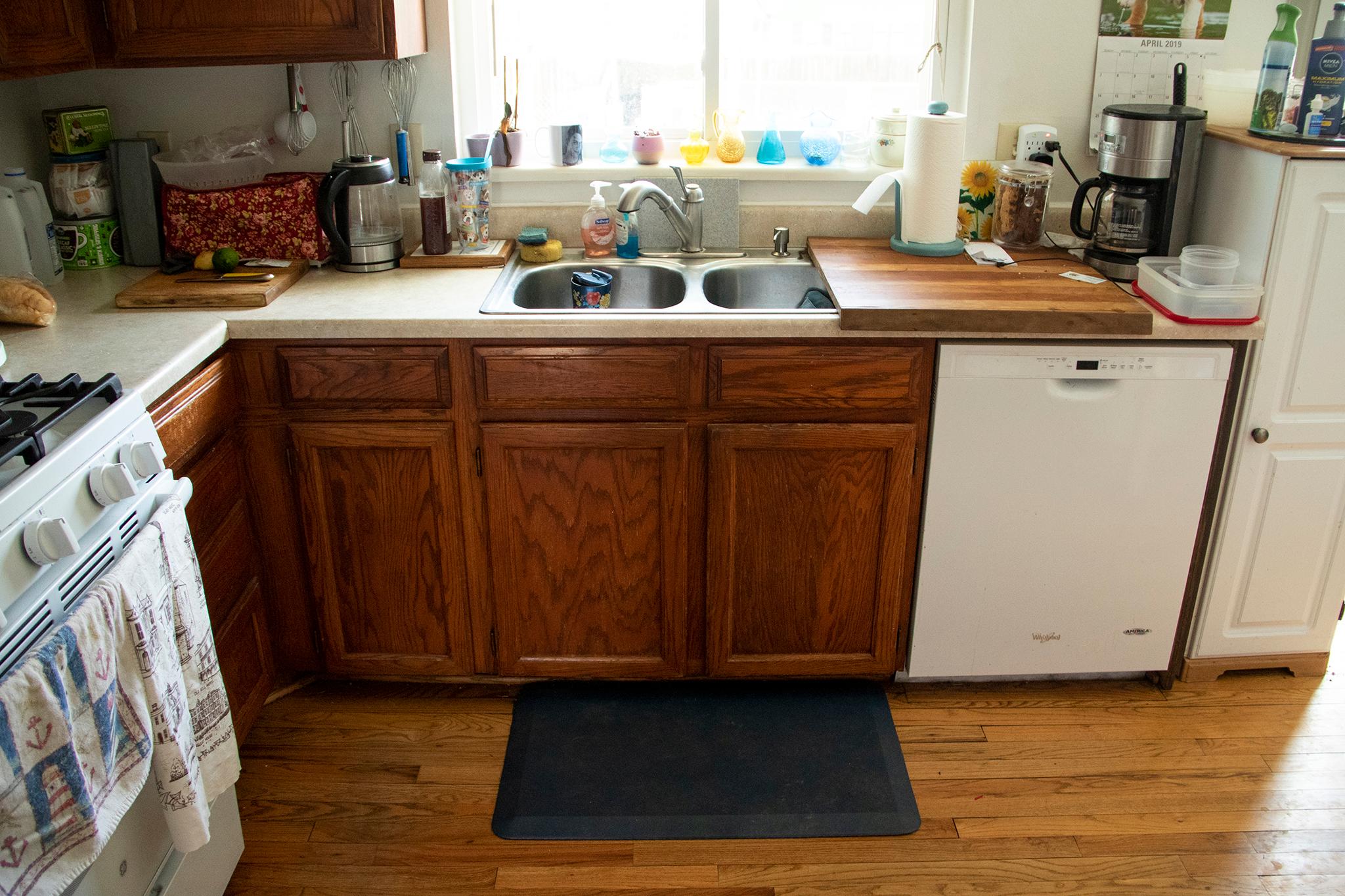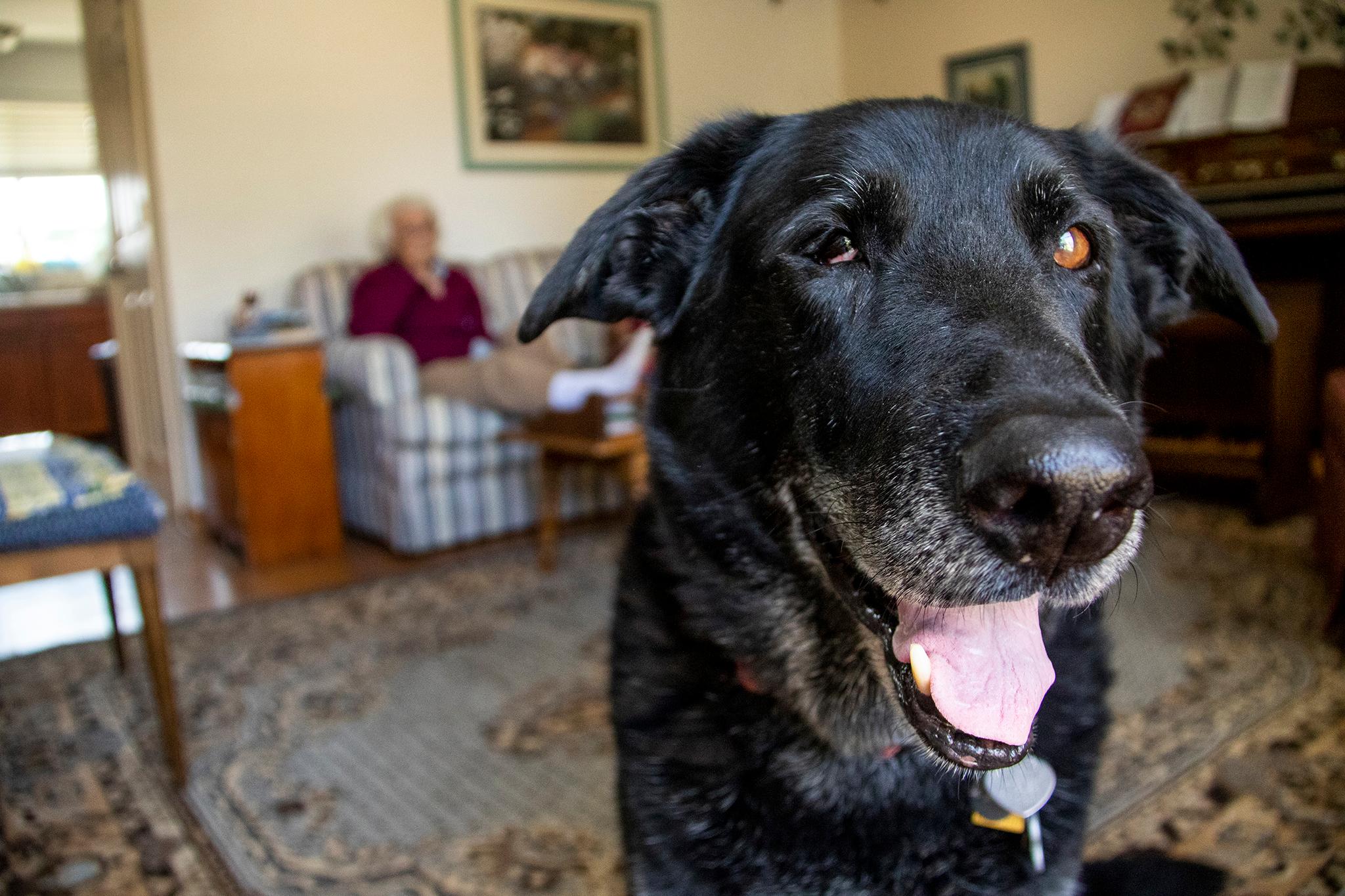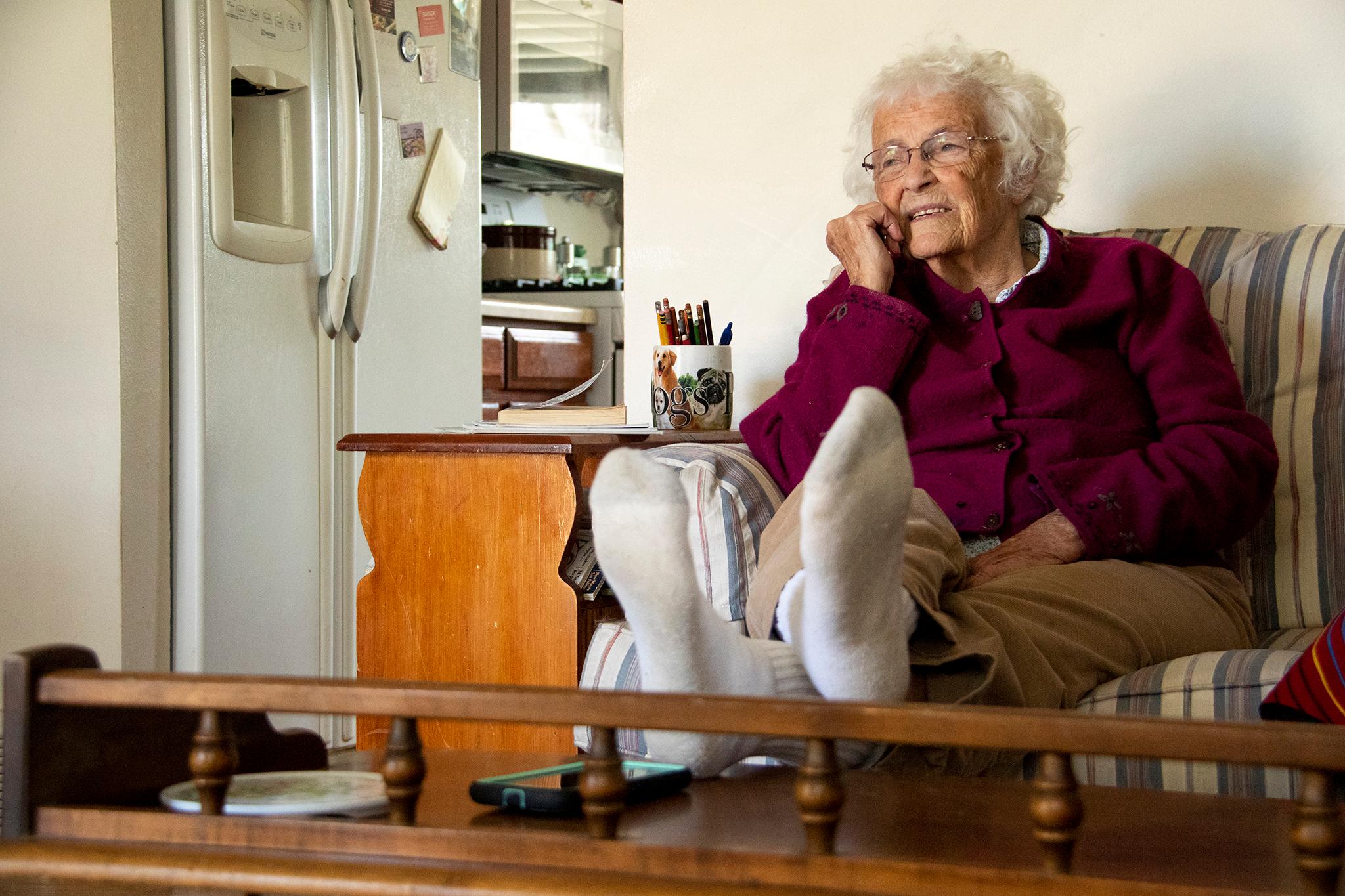Occupational therapist Amanda Goodenow has met resistance when she's interviewing seniors she hopes will take part in a health program she manages.
From their answers to her questions about whether arthritis is making it hard to conquer tasks like dressing or preparing meals, or whether they worry about tripping on uneven floors, it's clear to her they fear she's going to tell them it's no longer safe for them to live in their own homes.
In fact, Goodenow's goal is just the opposite. She's working to help seniors maintain their independence using an evidence-based national program.
Goodenow's boss at the nonprofit Colorado Visiting Nurse Association set out to bring the program to Colorado after reading in a medical journal about what the Johns Hopkins School of Nursing had accomplished with Community Aging in Place -- Advancing Better Living for Elders, or CAPABLE.
A 2010 pilot in Baltimore funded by the Center for Medicare and Medicaid Innovation brought together therapists, nurses and home repair specialists to support seniors in their homes. The CAPABLE team worked with people 65 and older to find ways to lessen difficulties they were having with tasks such as doing laundry or getting in and out of bed. At least two-thirds of more than 200 people who took part following CAPABLE's pilot stage reported they were finding it easier to complete everyday tasks, according to a Johns Hopkins study published in 2016.
"For an older person who has difficulty getting out of bed, going to the toilet, getting dressed and bathing, carrying out these functions could enable him or her to continue living at home instead of having to move to an assisted living facility or nursing home," the Johns Hopkins researchers concluded.
Goodenow said that "as a home health agency, that's what we want. We want to keep people home and we want to keep people safe."


Johns Hopkins now counts CAPABLE programs in 26 sites in 12 states. Christopher Lee, Colorado Visiting Nurse Association's president and chief executive officer, brought in Habitat for Humanity of Metro Denver as the repair gurus for Denver's donor-funded CAPABLE, the only one in Colorado. After helping 60 people in its first phase, the Denver program is expanding to 100 this year. A survey of the first 23 clients to finish the Colorado program found 77 reported improvement in the ability to perform daily tasks and nearly half felt less at risk of falling.
The Colorado Visiting Nurse Association provides home health, hospice and wellness services and strives to ensure everyone has access to care, regardless of ability to pay. Habitat for Humanity is known for helping low-income families buy homes, in part by putting them to work building them.
Habitat has in recent years expanded to performing household repairs that help people stay in their homes. Another expansion was being considered when Lee reached out, said Kiersten Kelley, a Habitat construction supervisor who manages her organization's role for CAPABLE in Colorado.
"We had been talking about trying to get into the aging-in-place market because there's so much need," Kelley said.
Metro Denver Habitat, the first and so far only Habitat branch anywhere in the country to take on CAPABLE, cites estimates that more than 80,000 seniors live in metro Denver and nearly three-quarters of them are homeowners. CAPABLE seeks out the most vulnerable. The average participant in Colorado is about 80 years old and living on a fixed income of about $2,000 a month. Few would be able to afford to move to assisted living or a nursing home. More than half live alone.
Participants must be homeowners who are at least 65, are having difficulty with activities such as bathing and cooking and have incomes at or below 80 percent of the area median income. They each get 10 visits in total over several months from an occupational therapist, a registered nurse and a Habitat construction manager. The visits and the Habitat home repairs are free to participants.
"The ultimate goal is to brainstorm, teach someone to strategize the areas of difficulty," therapist Goodenow said. The CAPABLE team is not "telling people what to do. We're giving them the tools to get better."
Habitat's Kelley said working with Goodenow has helped her see home repairs in a new way.
One CAPABLE client wanted to style her own hair and was finding it difficult to do in her home's cramped bathroom. Kelley oversaw a project that involved building a small chair, moving an outlet within easy reach of the woman with her curler and dryer, and installing a mirror. Kelley said she might not have considered that a "critical repair" -- or even a repair at all -- if the occupational therapist and nurse who had held initial meetings with the woman had not seen how important it was to her self confidence.
More typical home improvements include installation of grab bars in bathrooms and levers instead of hard-to-turn knobs on doors. Funding from supports such as the Colorado Health Foundation has expanded in the second stage of CAPABLE, allowing for the construction of ramps and other more ambitious projects such as installing step-in tubs. Kelley said one wheelchair-bound man for whom she built a ramp was then able to leave his home for the first time in years.
"Just to see him roll out his door and down the driveway to get his mail, I think everyone was in tears," she said. "I think about how when I get older I will be just as stubborn as some of these folks, wanting to do everything themselves."
Goodenow said sometimes that fierce independence can keep people from seeking the very help that could ensure they can keep looking after themselves. CAPABLE gets referrals from social workers and caregivers and Goodenow follows up with intake interviewers.
Several clients have been in Globeville, where Habitat is well known for its repair work and home building. It's a neighborhood where the connection to Habitat helps CAPABLE establish trust, the therapist said. One woman in Globeville, though, at first resisted Goodenow's intake questions.
"Everything was, 'No, it's not hard. I just do it,"' Goodenow recalled. "She was tore up with arthritis, so you know it was hard."
The woman eventually relented. When she finished her months with CAPABLE, she told Goodenow: "You need to tell everybody about this program!"
Barbara Dodge, an 85-year-old widow who lives in a mint green bungalow in Westminster, heard about CAPABLE from a visiting nurse. Dodge had had a series of health setbacks late last year, including a fall in her living room that badly injured an eye and a bout of food poisoning.
The initial visits from CAPABLE's health workers helped her with exercises that her own physical therapist had given her, Dodge said.
"The guy talked so fast, sometimes I just couldn't remember how I was supposed to do things," she said. She even learned some additional strengthening exercises from the CAPABLE nurses and occupational therapist.
"I always looked forward to them (the health care workers). And they loved my dogs," said Dodge, who has kept as her own the last of a series of rescues she has fostered over the years.

Habitat came later to install features such as a grab bar in her bathroom, an anti-fatigue mat in her kitchen and safety railings on her deck out back where she had had several falls. The Habitat team also installed rolling drawers in her cabinets that make it easier for Dodge, an avid baker, to reach her pans. They put up some shelves she'd been meaning to install in her office where she spends time writing an online chronicle of the family of her late husband. Earl Dodge was a temperance leader and ran for president as the candidate of the Prohibition Party six times.
The Habitat workers "were very friendly. They were willing to take a while and talk. I really enjoyed it," Barbara Dodge said.
She is garrulous, sharing stories of her husband's political career and of her life at home raising their seven children. Goodenow and Kelley both spoke of the pleasure of making connections with people like Barbara Dodge. And the Johns Hopkins researchers, who found more than half the seniors in their CAPABLE study felt less depressed, say the connections the program helps build are a part of why it's successful.














